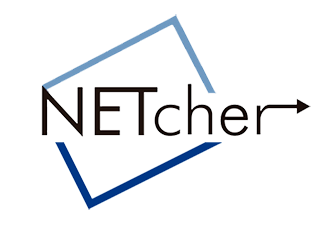Tuesday 13th October at 11:00 AM (CEST)
What’s NETCHER?
NETCHER is a dynamic EU project that is raising awareness about the illegal trafficking of cultural goods!
Check out our latest video ‘This black market destroys our history’ (subtitles are available).
Why NETCHER?
We are running a series of online gatherings, which aim to stimulate support, interaction, and participation between cultural heritage preservation stakeholders.
Cultural goods contribute to the world and to all of our lives, through the fundamental scientific information they give us and also from their historical value
We aim to alert a wide audience about the trafficking of cultural goods – including simple theft, illegal archaeological excavations, and the looting of art during times of war.
When NETCHER?
Our next event is a webinar on Tuesday 13th October at 11:00 AM (CEST) and as part of the series of NETCHER events, this Autumn edition will focus on the student audience, and as such is billed as the NETCHER “Education Webinar”
Who NETCHER?
Students from a range of disciplines such as Art, Archaeology, Art History, Ancient History, Culture, Law are invited to come to meet renowned academics, experts and specialists who will share deep knowledge of their subjects, and offer some interesting and notable testimonies on heritage trafficking.
How NETCHER?
Just follow the link and register!
- Link: https://app.livestorm.co/capital-high-tech/netcher-webinars-education-and-illicit-trafficking-of-cultural-goods
OUR EXPERTS
The confirmed speakers are:
Morgan Belzic
Morgan is a researcher of the Institut National d’Histoire de l’Art in Paris and a member of the French Archaeological Mission in Libya. After studying at the Ecole du Louvre and the Sorbonne, he graduated in Art History and History & Geography, specialising in Greek and Roman archaeology. He taught at the Ministry of National Education and at the Ecole du Louvre, and he is currently doing his PhD at the Ecole Pratique des Hautes Etudes on the Cyrenaican Funerary Sculptures.
Andris Kairiss
Andris received Master’s degree in sociology from the University of Latvia (2002) and Diploma in Law from the Police Academy of Latvia (2006). Since 2019, he has been a PhD oec. candidate at Riga Technical University. Currently he is a Manager of the nation-wide ESF project in the field of reduction corruption and shadow economy.
Zsuzsanna Vegh
Zsuzsanna Végh is a postdoctoral researcher of Egyptology. She defended her PhD dissertation at the Ludwig Maximilian University, Munich in 2016. For her thesis, she received the prestigious travel grant of the German Archaeological Institute. Her research on the antiquities trade on social media started with a postdoctoral project at the University of Edinburgh in 2019. Currently she is a project curator of the Circulating Artefacts project at the British Museum.
Lucas Verhaegen
Lucas has a Bachelor’s degree in Agronomy and Biochemistry and first worked in the private sector for a few years, before fulfilling his dream-to become a police officer. Based in Brussels, Lucas focused on criminal investigation with a specialisation in the follow-up of itinerant criminals groups from Eastern Europe. Lucas joined the ART unit in 2005 (specialising in the fight against illegal trafficking of cultural goods) and has specialised further in this field. In 2015, it was decided to abolish the ART unit completely but as ART crime requires a certain amount of expertise, the hierarchy decided that Lucas could continue in this function (https://spark.adobe.com/page/ctpuQBMPbOXug/)
AGENDA
Agenda 11h00 – 12h30
Our 4 speakers will present their special subject (20 mins each) and take a few questions on the content. Time permitting, there will be general Q&A for all panellists at the end.
Morgan Belzic
Fighting against looting and trafficking of Libyan antiquities in times of war
This presentation will illustrate the methods and tools used by the Archaeological Missions in Libya to try to document the traffic of antiquities. The current war has brought a huge development of looting and trafficking of archaeological pieces, and a new conscience of the role played by the specialists. Archaeologists fight against this phenomenon, documenting the destructions of archaeological remains in Libya, and the sales and seizures of archaeological material on the international Art Market. During recent years, an important cooperation has been initiated between the different actors, especially with Law enforcements, across North Africa, Europe and United States.
Andris Kairiss
Looting of Archaeological Sites in Latvia and Europe: Damage Assessment Aspects
Due to their commodity value archaeological sites often become targets of offences committed with the aim to get antiquities. Damages done to archaeological sites due to illegal activities relate not only to losses in terms of culture and historical knowledge, but also to a wider range of socio-economic interests. In the process of illegal obtainment of antiquities harm is being done to the archaeological site itself. Therefore the question arises what are the criteria for assessing damage to archaeological heritage caused by illegal activities and how justified is calculation of such damage in the relevant criminal and civil proceedings?
In order to answer this and other related questions the range of affected socio-economic interests, as well as current approach and practice in Latvia and several other European countries are observed in the presentation.
Zsuzsanna Vegh
Antiquities trafficking on social media
The looting and destruction of archaeological sites and museums in the Middle East in recent years has garnered considerable public attention. There is also a growing awareness of the role that social media play in facilitating the trade in illicit antiquities. Mediums such as Facebook, Instagram, YouTube and WhatsApp provide ideal tools for looters and traffickers to communicate with one another unhindered and largely undetected.
The communities formed on these platforms not only enable their members to buy and sell looted artefacts, but also to share their experience and knowledge. The photos and videos posted on social media are often the only evidence that an archaeological object exists or existed, as many perish in the process of smuggling. They also help us identify illicit objects when they resurface in the hands of western dealers. This presentation will give a brief overview of the current regulations governing the various platforms, present the main challenges in data collection, and draw attention to the principal projects that research and help to tackle the illicit trade these platforms enable.
Lucas Verhaegen
Fighting Art Crime in Belgium – who and what lies behind illegal trafficking?
A presentation illustrating a case study of a judicial investigation that has now been finalised.
Just follow the link and register!
- Link: https://app.livestorm.co/capital-high-tech/netcher-webinars-education-and-illicit-trafficking-of-cultural-goods

